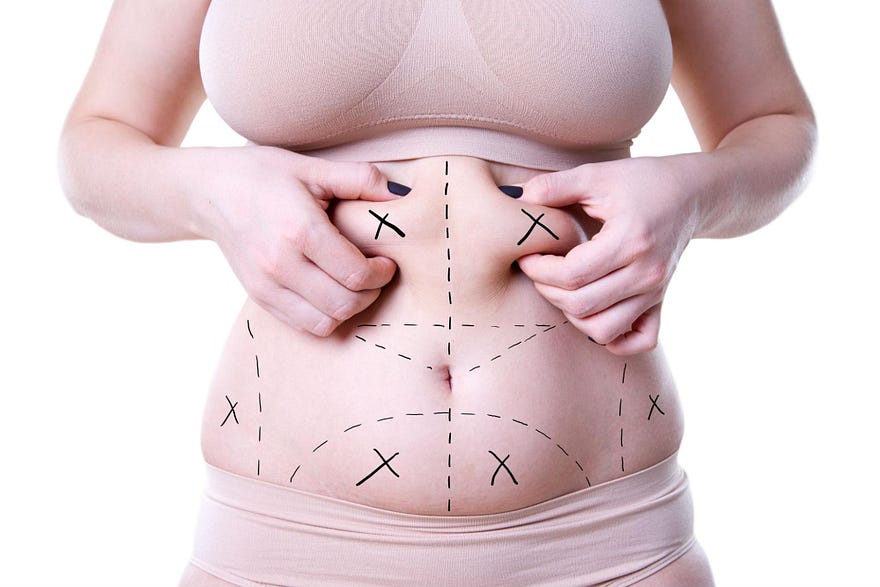Many people struggling with stubborn fat deposits often wonder if liposuction is a quick solution for weight loss. This cosmetic procedure is known for contouring the body by removing localized fat, but it’s essential to understand its true purpose. Liposuction in Islamabad is increasingly popular among individuals who want to achieve a sculpted figure when exercise and diet fail to target specific fat areas. However, it’s not designed as a method for overall weight reduction. Understanding its benefits, limitations, and realistic expectations is crucial before considering it as an option.
What Is Liposuction and How Does It Work?
Liposuction is a cosmetic procedure that removes excess fat deposits from targeted body areas such as the abdomen, thighs, hips, arms, and chin. Surgeons use suction-assisted techniques to extract fat cells through small incisions. The primary goal is to improve body contour, not to induce weight loss. It helps refine areas resistant to lifestyle changes but doesn’t replace the importance of a balanced diet and regular physical activity.

Is Liposuction a Weight Loss Solution?
Liposuction is not a weight loss treatment. It is best suited for individuals who are already close to their ideal body weight but have specific fat deposits that are difficult to eliminate. It does not significantly alter metabolism or reduce overall body mass. People with obesity or those looking to shed substantial weight should first consider lifestyle changes or medically supervised weight management before undergoing this procedure.
Who Is an Ideal Candidate for Liposuction?
The ideal candidate is someone in good physical health, with stable weight, and realistic expectations. It works best for those who maintain healthy habits but struggle with localized fat in areas like the lower abdomen, thighs, or back. Skin elasticity also plays an important role — people with firm skin tend to experience smoother results after fat removal.
How Much Fat Can Be Removed with Liposuction?
Liposuction can safely remove several liters of fat, but it does not eliminate enough to cause major weight reduction. The procedure focuses on shape enhancement and proportional balance rather than scale numbers. Removing too much fat can lead to health risks, so surgeons prioritize safety and natural-looking outcomes.
Does Liposuction Prevent Future Fat Gain?
Liposuction permanently removes fat cells from specific areas. However, remaining fat cells can still expand if unhealthy eating habits return. To maintain results, it’s essential to follow a balanced diet and active lifestyle. The procedure reshapes the body’s contour but long-term success depends on personal discipline and maintenance.
How Is Liposuction Different from Weight Management?
Weight management involves lifestyle modifications such as exercise, nutrition, and hydration. Liposuction is a contouring treatment that enhances body aesthetics but doesn’t address internal fat or metabolic health. Combining both approaches — healthy habits and body sculpting — delivers the best long-term physical and aesthetic results.
Common Misconceptions About Liposuction:
- It’s a weight loss shortcut: Liposuction removes fat pockets, not overall body mass.
- Results are permanent without effort: Maintenance is required through healthy living.
- It tightens skin automatically: While minor tightening may occur, it doesn’t replace skin-lifting procedures.
- It’s only for women: Men also benefit from liposuction, especially in areas like the chest or abdomen.
What Results Can Be Expected After Liposuction?
After the procedure, swelling and mild bruising may occur, which gradually subside within weeks. The final shape becomes visible after healing. The body appears more defined, and clothes fit better. Patients often feel more confident as stubborn bulges are eliminated, giving a natural and balanced appearance.
Can Liposuction Improve Overall Health?
Although liposuction improves appearance, it should not be seen as a method to prevent or treat obesity-related conditions. It can slightly improve physical comfort and self-image, but it does not replace medical treatment for weight-related diseases. For long-term wellness, consistent exercise and mindful eating remain essential.
Does Liposuction Work on All Body Areas?
Liposuction can target multiple regions, including the abdomen, flanks, thighs, upper arms, back, neck, and chin. However, results depend on the area’s fat distribution and the individual’s body structure. The best outcomes are achieved when performed by a skilled surgeon using appropriate techniques for each specific region.
What Are the Risks and Precautions?
Like any surgical procedure, liposuction carries risks such as infection, uneven contours, and temporary numbness. Choosing a qualified surgeon, following pre- and post-operative care instructions, and maintaining overall health minimize these risks. Staying hydrated, wearing compression garments, and avoiding strenuous activity during recovery promote smooth healing.
How to Maintain Liposuction Results Long-Term?
Maintaining results involves balanced nutrition, regular workouts, and adequate hydration. Avoiding excessive calorie intake prevents fat reaccumulation. Building muscle tone through strength exercises enhances the sculpted look achieved after liposuction. Healthy lifestyle habits are key to preserving the refined body shape.
Conclusion:
Liposuction is a contouring solution, not a substitute for weight loss. It refines specific body areas resistant to diet and exercise but does not replace traditional methods of managing body weight. For individuals considering liposuction in Islamabad, it is essential to consult a professional to ensure suitability and realistic expectations. Combining a healthy lifestyle with targeted contouring can lead to the most satisfying and lasting results.



No comments:
Post a Comment